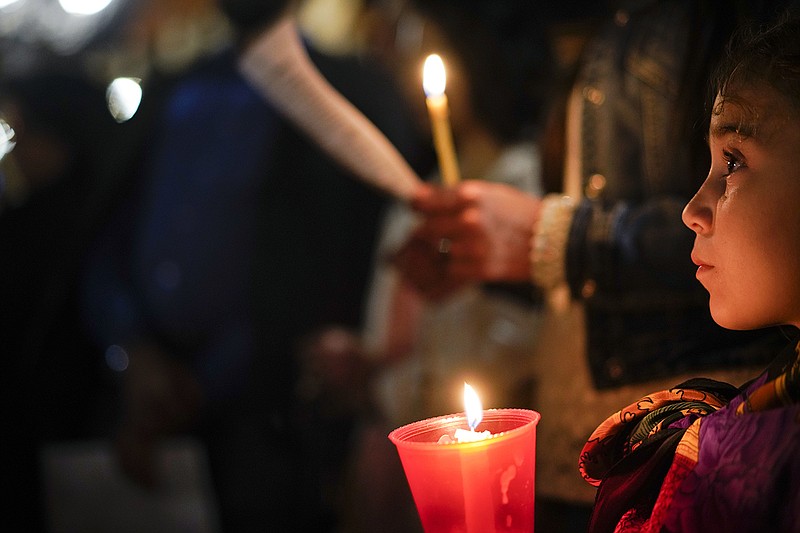Some magazine stories are fishhooks; they work their way into your mind and don't come out. Rachel Aviv of The New Yorker has written several such pieces in the last year, including one about an African-American mother's battle to keep her brain-damaged daughter alive after the girl was declared clinically dead, and another about the way court-appointed legal guardians in Nevada exploit the elderly placed into their care.
I've been thinking about both stories while watching the drama of Alfie Evans, an English almost-2-year-old with a devastating brain condition whose parents were denied the chance to move him to another hospital or country by a decree from doctors and judges that the time had come for him to die. It is the second such case in the United Kingdom recently, and the basic facts are roughly similar to the last one, in which a baby named Charlie Gard died of a rare genetic condition after the courts similarly ruled against his parents' desire to take him abroad for an experimental treatment.
In each case, the doctors and judges had plausible medical arguments that the limits of treatment had been reached. (Although in the case of Evans, their expertise was undercut by the boy's refusal to swiftly die, as predicted, when his breathing apparatus was removed; he lived for five days before expiring Saturday.) But in each case that judgment was deployed for wicked ends, stripping parents who were not unfit of their ability to act as parents, denying them the ability to choose not only last-ditch treatments but even where and how their ailing children died.
It is easy see the relevance here of Aviv's story about Jahi McMath, a teenager from Oakland declared brain-dead after a horribly-botched tonsillectomy, whose family managed to spirit her away to New Jersey, where religious-freedom laws allow families to reject a "brain-death" ruling and keep a loved one on a feeding tube indefinitely.
Since then Jahi has survived for years despite confident medical predictions to the contrary, and she now gives pretty decent evidence of retaining some form of consciousness, some ability to listen and respond.
This tendency to arrogate power away from the family is not just an issue for extreme medical cases. In Aviv's story on guardianship among the elderly, it plays out in a more prosaic and yet similarly shocking form - with old people who are hardly incompetent handed over to professional guardians who sell their assets and consign them to assisted living facilities from which they can't escape.
The basic dynamic is like the Gard and Evans and McMath cases but with the generational roles reversed: Instead of parents trying to pry their children away from the medical establishment, you have adult children unable to bring their parents home because their state-appointed guardians say no.
Aviv focuses on the Kafkaesque odyssey of Julie Belshe, a mother of three who spent years extracting her parents from the talons of a woman, April Parks, who was later indicted on charges of perjury and theft. But Parks flourished in a larger system designed around the assumption that old people are basically better off without their kids, because offspring are probably motivated either by raw emotionalism or by gimme-gimme avarice, as opposed to the cool wisdom of expert doctors, professional guardians, and wise judges.
It is the task of our present to ensure that where the family still has the capacity to choose for an aging parent or a dying child, the family rather than the system gets to make the choice.
Yes, that choice may be wrong; it may have its own dark or foolish motivations. But those are risks a humane society has to take, so that in our weakest moments we can hope to be surrounded not just by knowledge or power, but by love.
The New York Times
